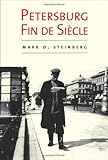Support H-Net | Buy Books Here | Help Support the NBN and NBN en Español on Patreon | Visit New Books Network en Español!
- African Studies
- African American Studies
- American Politics
- American Studies
- American South
- American West
- Asian American Studies
- Australian and New Zealand Studies
- British Studies
- Canadian Studies
- Caribbean Studies
- Central Asian Studies
- Chinese Studies
- East Asian Studies
- Eastern European Studies
- European Politics
- French Studies
- German Studies
- Iberian Studies
- India Studies
- Indian Ocean World
- Iranian Studies
- Irish Studies
- Israel Studies
- Italian Studies
- Japanese Studies
- Korean Studies
- Latino Studies
- Latin American Studies
- Mexican Studies
- Middle Eastern Studies
- Native American Studies
- Pacific Studies
- Polish Studies
- Russian and Eurasian Studies
- Southeast Asian Studies
- South Asian Studies
- Turkish Studies
- Ukrainian Studies
- Western European Studies
- World Affairs
- Animal Studies
- Anthropology
- Archaeology
- Business, Management, and Marketing
- Media
- Critical Theory
- Disability Studies
- Drugs, Addiction and Recovery
- Education
- Economics
- Finance
- Geography
- Gender Studies
- Genocide Studies
- Higher Education
- Human Rights
- Journalism
- Language
- Law
- LGBTQ+ Studies
- National Security
- Philanthropy
- Philosophy
- Policing, Incarceration, and Reform
- Political Science
- Politics & Polemics
- Public Policy
- Sex, Sexuality, and Sex Work
- Sociology
- Sound Studies
- Sports
- Urban Studies
- Big Ideas
- Celebration Studies
- Co-Authored
- Cover Story
- Historical Materialism
- History Ex Silo
- Interpretive Political and Social Science
- Invested Investor
- Landscape Architecture
- Late Antiquity
- Mormonism
- NBN Book of the Day
- NBN Seminar
- Postscript: Conversations on Politics and Political Science
- Practical History
- Preparing for Life After Grad School
- Psychology and Climate Change
- Syriac Studies
- The Chair: In The Room at the Fed
- New Books with Miranda Melcher

Dec 21, 2012
Opposing Jim Crow
African Americans and the Soviet Indictment of US Racism, 1928-1937
Summary
In December 1958, US Senator Hubert H. Humphery recalled that at some point during an eight hour meeting with Nikita Khrushchev, the Soviet Premier "tore off on a whole long lecture" that the Senator wished he could remember because it was "the best speech I could ever make in my life on antiracialism. Boy, he really gave me a talking to." Thus beings Meredith Roman's fascinating book Opposing Jim Crow: African Americans and the Soviet Indictment of US Racism, 1928-1937 (Nebraska UP, 2012). At first read, the image of animated Khrushchev haranguing a US Senator with "the best speech" the latter ever heard on the topic of race seems out of place, odd, and to some extent even comical. After all, what could Khrushchev really have known about race in America to impress an American?
Khrushchev's fluency in "speaking antiracism" was no mere preformative dig at the United States. In fact, many African American travelers and expatriates to the Soviet Union in the 1930s were astonished how much its citizens knew and were concerned about American race relations. In Opposing Jim Crow, Roman shows that antiracism was a genuine vernacular constructed through show trials, antiracist campaigns, media, and representations of racial oppression in the United States. It was through American racism that the USSR was crafted into a morally superior, raceless society. Nothing reinforced this idea more than the adoption of Soviet antiracist discourse by American Americans visitors, expatriates, and sympathizers themselves. But more importantly, it was via these multiple intersections that speaking antiracism became an important, and until now ignored, component in the effort to create new Soviet people in the 1930s.



































































































